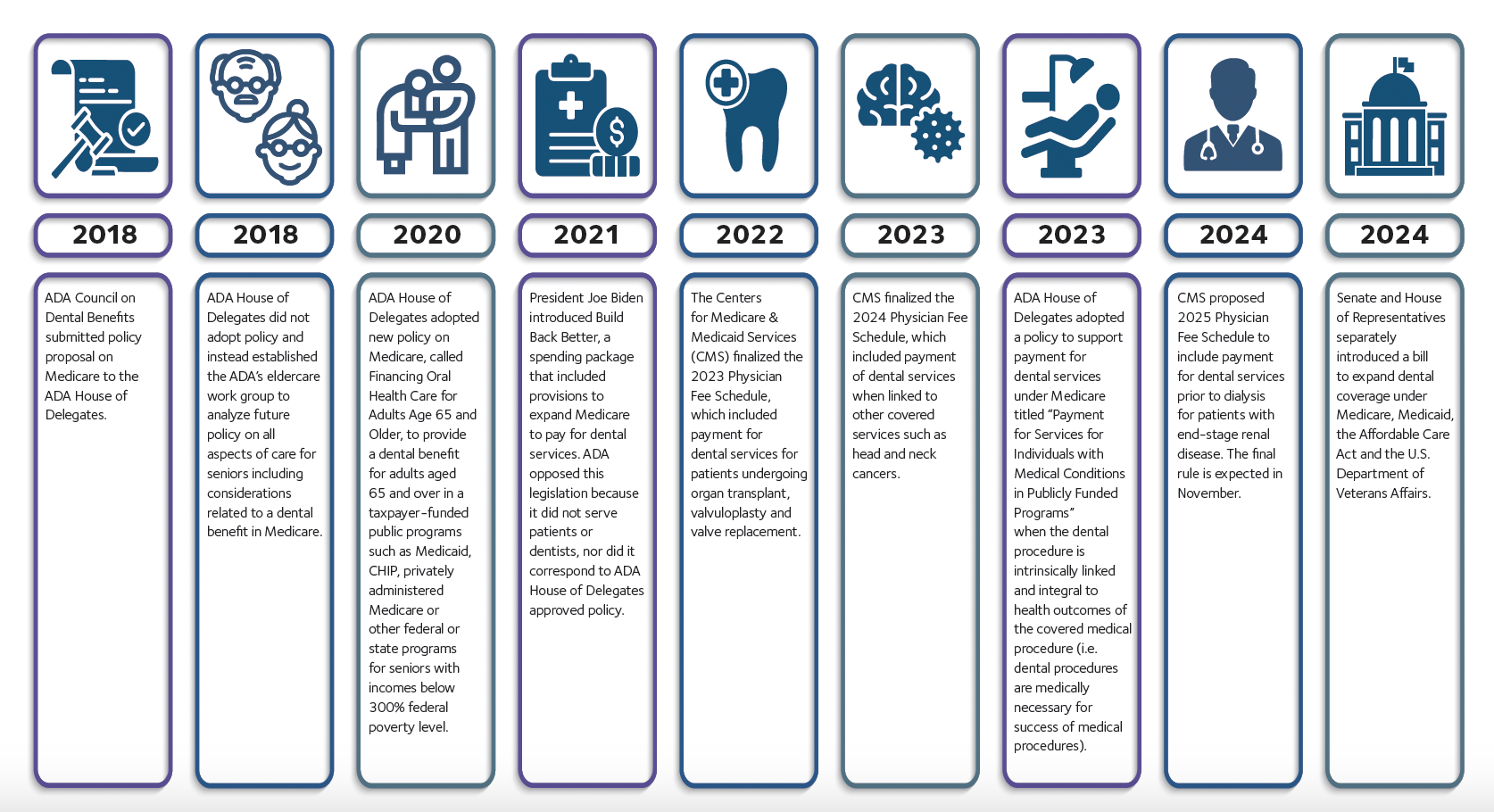House bill introduced to expand access to dental care
Proposed legislation would increase dental coverage under Medicare

A bill to expand dental coverage under Medicare, Medicaid, the Affordable Care Act and the U.S. Department of Veterans Affairs was introduced in the U.S. House of Representatives Sept. 17.
The companion bill was introduced by Rep. Debbie Dingell, D-Mich., following legislation proposed by Sen. Bernie Sanders, I-Vt., in May. The legislation is an outgrowth of a hearing Mr. Sanders held this spring on oral health access.
Known as the Comprehensive Dental Care Reform Act of 2024, the legislation aims to increase dental coverage for those 65 and older, lower-income Americans and veterans. If passed, it would make dental care an essential health benefit under the Affordable Care Act, increase reimbursement rates for oral health care procedures under Medicaid, include a dental benefit in Medicare and make dental services available in more places, such as community health centers, throughout the country.
The bill also aims to increase funding for health clinics and school-based dental services, authorize funding for research on prevention and disease management, and increase the number of oral health professionals who work in underserved areas.
“The sponsors’ intention of introducing a bill to make oral health more accessible for our country’s most vulnerable while addressing many of ADA’s priorities is a positive development, inserting a comprehensive dental benefit in Medicare requires significant discussion and input from the profession," said Stacey Gardner, D.M.D., chair of the Council on Dental Benefit Programs. "We will continue to have discussions with the sponsors to provide the perspective of the profession in order to work together on solutions that are impactful, economically feasible, viable to support access and can be meaningfully utilized by those who are in greatest need.”
Substantive conversations about including a comprehensive dental benefit in Medicare began in 2016 when the ADA’s Board of Trustees became aware of a coalition pursuing dentistry’s inclusion in Medicare. For years, there have been ongoing discussions and resolute efforts by other groups to progress Medicare coverage through both regulations and legislation developed on Capitol Hill. The ADA will continue to engage with legislators on the proposed bills to provide the perspective of the profession as guided by policy from the ADA House of Delegates and previous comments provided to the Centers for Medicare & Medicaid Services.
Below is a timeline of the ADA’s engagement on this issue since 2018.
- 2018: ADA Council on Dental Benefits submitted policy proposal on Medicare to the ADA House of Delegates.
- 2018: ADA House of Delegates did not adopt policy and instead established the ADA’s eldercare work group to analyze future policy on all aspects of care for seniors including considerations related to a dental benefit in Medicare.
- 2020: ADA House of Delegates adopted new policy titled “Financing Oral Health Care for Adults Age 65 and Older” to address dental benefits for adults aged 65 and over in a taxpayer-funded public programs such as Medicaid, CHIP, privately administered Medicare or other federal or state programs for seniors with incomes below 300% federal poverty level.
- 2021: President Joe Biden introduced Build Back Better, a spending package that included provisions to expand Medicare to pay for dental services. ADA opposed this legislation because it did not serve patients or dentists, nor did it correspond to ADA House of Delegates approved policy.
- 2022: CMS finalized the 2023 Physician Fee Schedule, which included payment for dental services for patients undergoing organ transplant, valvuloplasty and valve replacement.
- 2023: CMS finalized the 2024 Physician Fee Schedule, which included payment of dental services for patients undergoing treatment for head and neck cancers.
- 2023: ADA House of Delegates adopted a policy to support payment for dental services under Medicare titled “Payment for Services for Individuals with Medical Conditions in Publicly Funded Programs” when the dental procedure is intrinsically linked and integral to health outcomes of the covered medical procedure (i.e. dental procedures are medically necessary for success of medical procedures).
- 2024: CMS proposed 2025 Physician Fee Schedule to include payment for dental services prior to dialysis for patients with end-stage renal disease. The final rule is expected in November.
- 2024: Senate and House of Representatives separately introduced a bill to expand dental coverage under Medicare, Medicaid, the Affordable Care Act and the U.S. Department of Veterans Affairs.
“Dentists must continue to explore whether a program like Medicare, if adequately funded, will work for providers and actually improve the health of the aging patients we serve," said Dr. Gardner.
On Sept. 9, the ADA submitted comments in response to the proposed 2025 Medicare Physician Fee Schedule Rule. In a letter addressed to CMS Administrator Chiquita Brooks-LaSure, the ADA commented on various topics, such as the proposal to cover payment for dental services for patients with end-stage renal disease who are undergoing dialysis and provided feedback on questions raised about dental care for patients with diabetes, ICD-10 implementation for Medicare claims and what constitutes an exchange of information or care coordination in the dental claims process.
The Council on Dental Benefit Programs and the Council on Government Affairs have been analyzing the administration and financial implications of the participation in public programs like Medicare for more than eight years.
“We need to educate our patients and policymakers on what we think are best approaches to support care for seniors,” said Leigh Kent, D.D.S., chair of CGA. “There is an immediate need for ADA to continue to be a leading voice on this issue and provide education and information to dentists, patients and policymakers as these conversations continue or else our experience and guidance will be ignored.”



